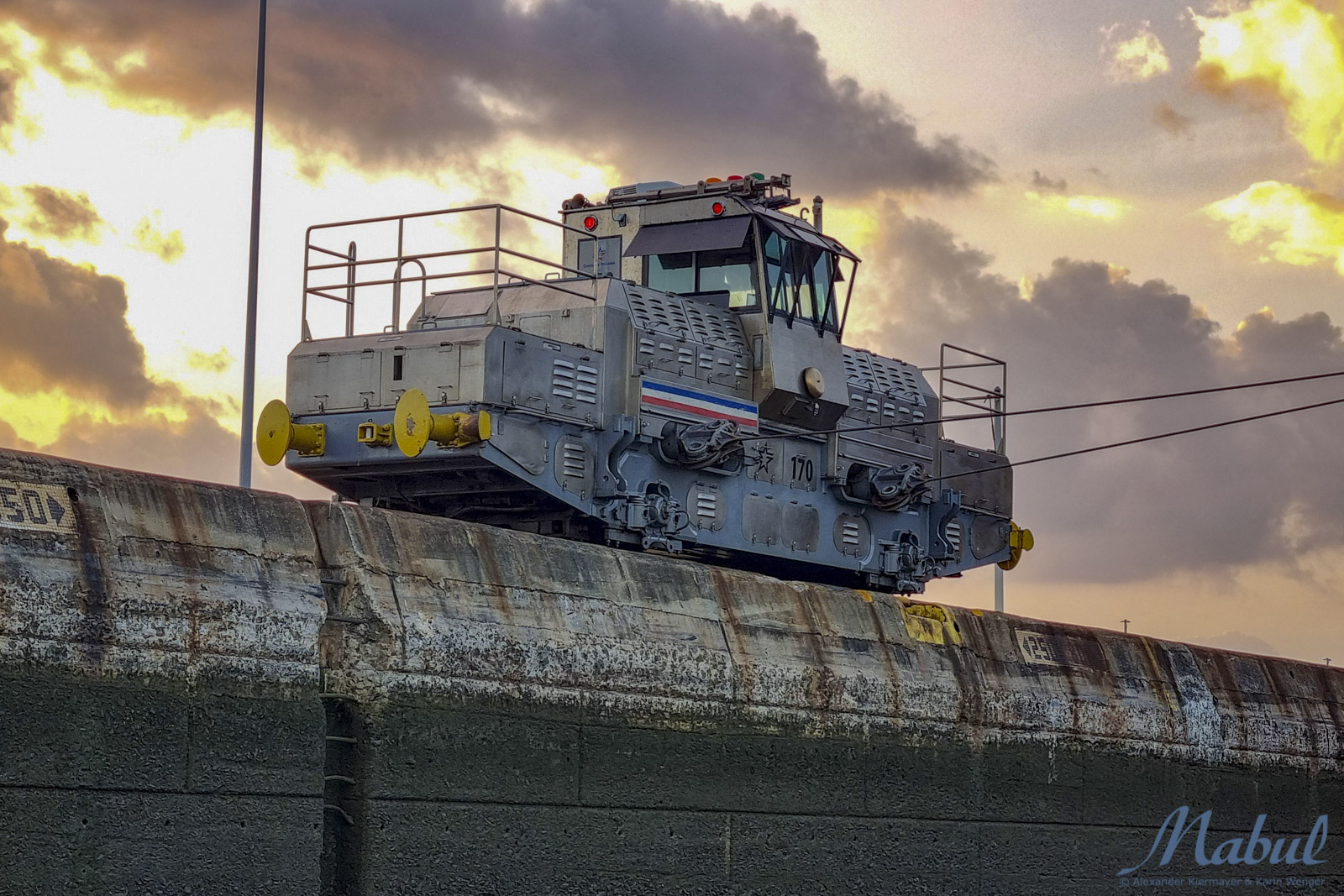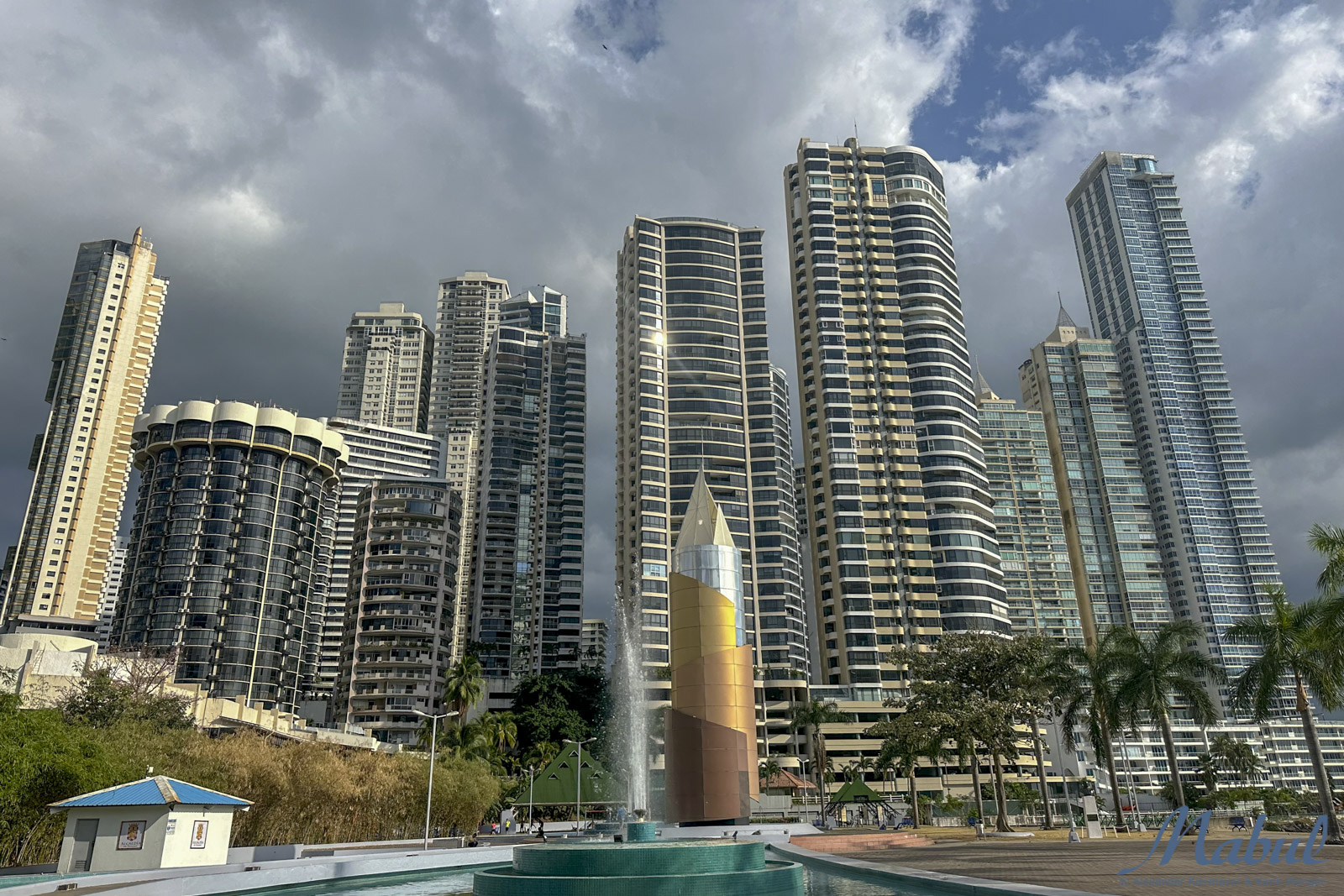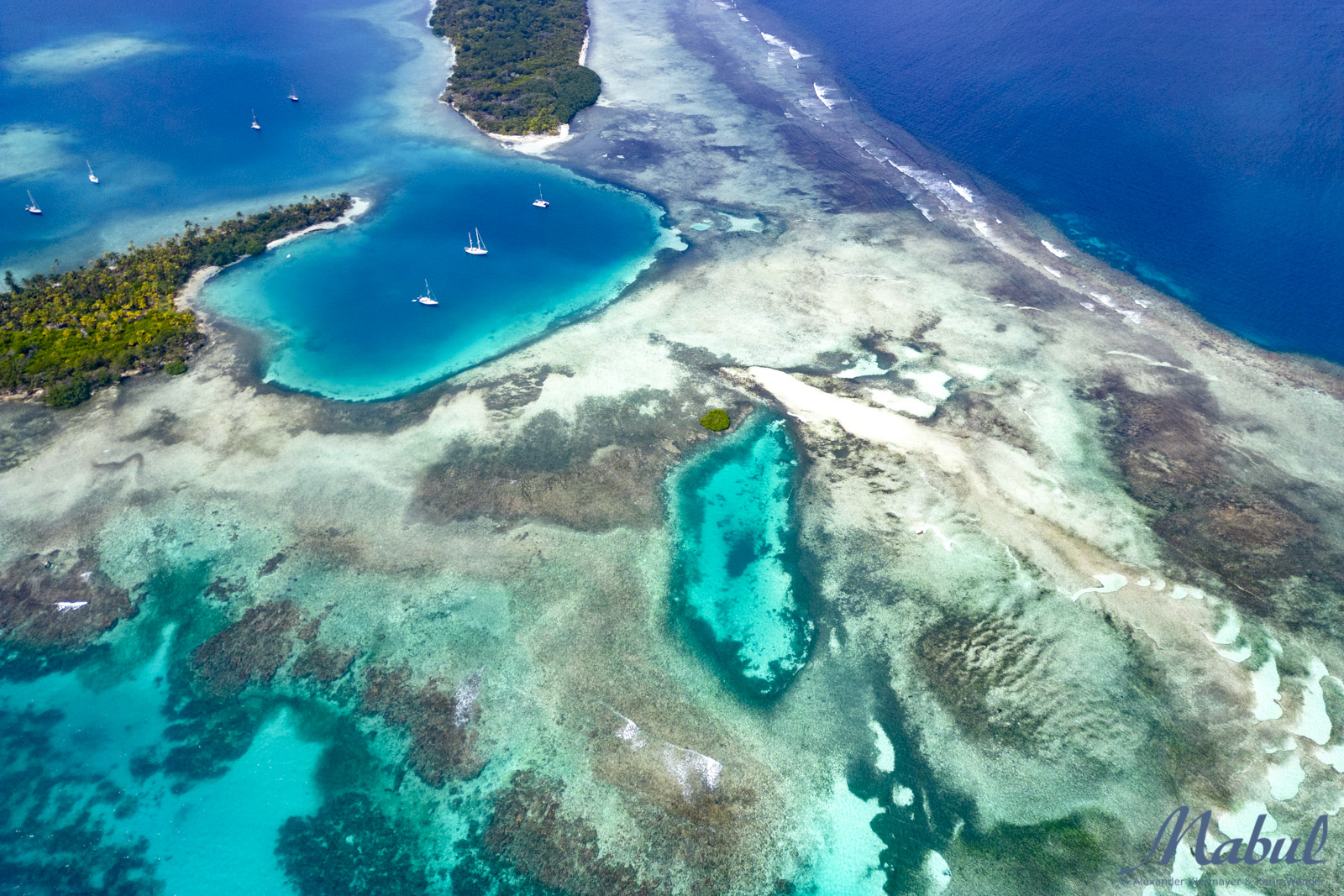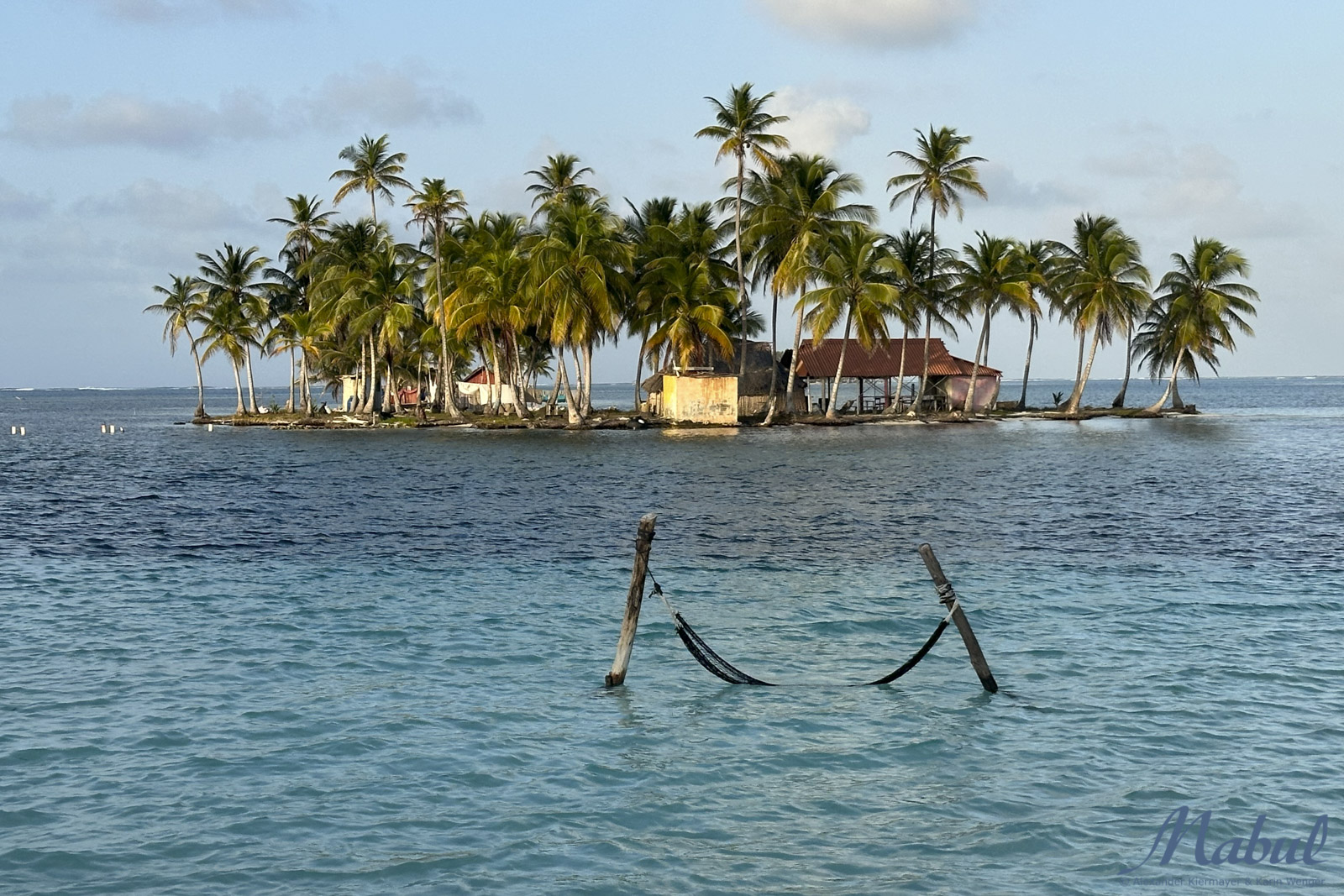Finally, a weather window opens up that allows us to safely leave the atoll of Cayos Albuquerque without an engine, and we set sail. On the way, we are accompanied by a few birds that are still asleep when we drop anchor at eleven at night. There are lots of boat jobs to do here in Bocas del Toro. The priority is clearly to replace the cutlass bearing and find the cause of the rapid wear and tear. Before we haul out in Almirante, we spend a week close to Bocas and get all the provisions on board Mabul. The long-awaited and well-traveled gennaker has also finally arrived. Many thanks again to Stephan from our sponsor VM Sails! We tow Mabul the last ten miles to the shipyard with our dinghy moored alongside. Once there, the true extent of the damage becomes apparent after a few days. Once again, Alex works like mad for a whole three weeks before Mabul is floating in the water again.
Continue reading →Alex
The supposed paradise
Karin’s column about Cayos Albuquerque, a Colombian atoll off the coast of Nicaragua.
Published in “global” magazine from Alliance Sud, issue Winter 2022/23.
https://www.alliancesud.ch/de/cayo-albuquerque
Continue reading →Logbook for a happy life
Karin’s portraits of four sailors we met on our trip.
Published in NZZ, issue 21th Jun 2024.
Traffic jam at the Panama Canal
The Panama Canal is one of the most important bottlenecks for international shipping. Approximately five percent of world trade is now handled through the canal, and two thirds of all ships that pass through the canal come from or go to the USA. Thanks to the Panama Canal, international shipping routes have been shortened by weeks or even months. Merchant ships, cruise ships, sailing ships and warships no longer have to sail around Cape Horn, which is feared as a ship graveyard with its wild storms and untameable waves, but can cross the continent in a day. The canal is fed with fresh water from two reservoirs: Lake Gatún and Lake Alajuela. These also supply the two million Panamanians who live in the center of the country. The population and the ships compete for the water. For a long time, this was no cause for concern, as tropical Panama is one of the rainiest countries in the world and the reservoirs were always well filled. However, everything changed last year with the El Niño climate phenomenon.
Published in the magazine “Reportagen”, issue #77.
https://reportagen.com/reportage/stau-am-panamakanal
Continue reading →Gallery – Cayos Albuquerque
We say goodbye to Panama and set off for the Cayman Islands with our friend Lea. This is right on our planned route to the Bahamas and makes an ideal stopover. On the very first night, water spills into the forward bathroom in the middle of the night, so we sail to Cayos Albuquerque to dry out and seal Mabul again. A completely unexpected paradise awaits us here. Two small islands in the middle of an atoll surrounded by crystal-clear water. We meet the Colombian army and coast guard, spend time with the local fishermen and experience and hear many a curious story.
Continue reading →Gallery – Panama Canal
Then plans change: We decide that we and Mabul are not yet ready for the Pacific and that we would stay one more season on the Caribbean side. Of course, we still keep our promise to be line handlers for SV My Motu during their Panama Canal transit. So we moor Mabul in the Turtle Cay Marina and go on board SV My Motu. Together we make our way to Shelter Bay Marina in Colon. This is the first (almost) necessary stop before heading into the canal. There, the final preparations are made, large fenders and long lines are delivered by the agent and we get a briefing. Then we set off shortly after four o’clock in the morning.
Continue reading →Gallery – Panama
There are different places one can go cruising in Panama. We visit San Blas and Portobelo and dock Mabul in the marinas of Linton Bay and Turtle Cay. Preparations for the Pacific are in full swing. Together with the crew of SV My Motu we rent a car to make various trips to Colon. In Shelter Bay Marina I pick up our new anchor chain, deliver lithium batteries from sailors in San Blas and in return get Canadian passports for people in San Blas. We buy food and alcohol in the Zona Libre, I get our liferaft serviced and pick up packages from the US. Before the second San Blas round with Georges, we visit Portobelo, a small town with a great history, and after transiting the canal on My Motu, we explore Panama City while Mabul lies patiently waiting for us in the Turtle Cay Marina.
Continue reading →Gallery – San Blas II
After all the jobs in Linton Bay Marina and Colon, are done, Mabul is equipped with a new 80 metre long anchor chain, six brand new AGM batteries with a capacity of 630AH and an incredible amount of food. Karin returns from Switzerland with not only some boat parts, but also her father Georges. We spend a short time in the marina and then set off under engine in total calm. If you ask the people here, you quickly realize that this is the best way to cruising back to San Blas. Once again we drop anchor off some small sand islands, snorkeling, cooking, drinking… Georges is doing amazingly well on board and brings new vigour to the galley.
Continue reading →Gallery – San Blas I
The next leg from Providencia will take us together with SV My Motu to Panama, or to be more precise, to San Blas. We heard a lot people saying, cruising in San Blas is a must, so we want to spend a few more nice weeks at anchor here and then sail through the canal to reach the Pacific. We clear in at the small island of Porvenir and spend two weeks exploring the archipelago with its more than 350 islands. But there are still a few jobs on the list before we can cross the channel, such as a liferaft service, then we need to buy the new anchor chain and loads of food. I sail single-handed into Linton Bay Marina for the first time, while Karin deals with things in Switzerland. Linton Bay is where Karin and her father Georges will return to from Switzerland so that we can sail one more time to San Blas.
Continue reading →The mystical world of San Blas
Karin’s column about San Blas, an archipelago in Panama.
Published in “global” magazine from Alliance Sud, issue Spring 2024.
https://www.alliancesud.ch/de/die-mystische-welt-von-san-blas
Continue reading →













